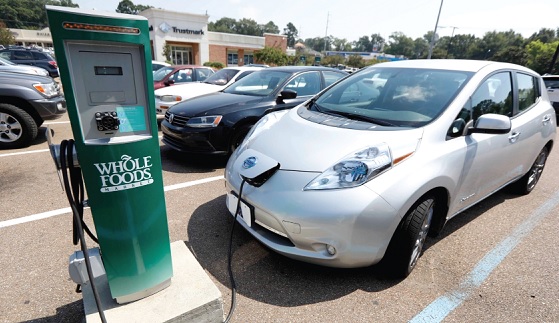
Tackling E-mobility evolution - Transport Min shows way
On August 4, 1974, Ghana joined many other countries to switch from right hand driving to left hand driving thereby triggering the re-engineering of roads, orientations, education and sensitisation of road users, including pedestrians and drivers all over the country at the time.
Advertisement
The current pace of technological advancement is affecting every sector, including transport.
Thus, Ghana’s Ministry of Transport has expediently embarked on series of engagements with critical stakeholders to strategically position the country on the emergence of Electric Vehicles (E-vehicles), E-motorcycles and E-bicycles.
A few of the E-vehicles, for instance, are already being used in Ghana.
Engagements
The team from the Ministry of Transport has so far toured 14 regions, apart from the Greater Accra and the Upper West regions, as part of the stakeholder engagements and consultations.
It has also met with Civil Society Organisations (CSOs), used car dealers, People With Disabilities (PWDs), spare parts dealers, mechanics, and recently, the Ghana Journalists Association (GJA), before engaging the remaining two regions.
The meeting with the GJA has been held at these early stages with the view that the ministry and its partners carry the media along throughout the process, for journalists to shape the narrative loaded with all the relevant information and the tools for the engagements necessary for the successful roll-out of an E-mobility policy.
E- mobility policy
The E-mobility policy, when implemented, would govern the usage of the E-vehicles, E-motorcycles and cycles across the country and it aims at fashioning out standards, guidelines and operating mechanisms for Ghana.
The preparation by the Ministry of Transport and its sister agencies is timely, considering the evolution taking place globally now.
E-Vehicles would definitely take over, just like with the switch from the right hand drive to the left in 1974.
Currently, Rwanda, a country of about 13 million people with a land size of about the size of the Northern Region of Ghana is reported to have some 1000 E-vehicles and more than 4000 E-motorcycles.
Again, in Europe generally, it is expected that by the year 2030, they will stop using vehicles that consume petrol and diesel.
Norway, for instance is reported to dispense with the use of fossil-based vehicles in a year and a half, while the United Kingdom (UK) is also said to be planning to phase out fossil-based vehicles by the year 2050.
Recent statistics also indicate that over 80 per cent of cars in Norway are E-vehicles and there is a gradual shift away from Internal Combustion Engines (ICEs) to E-vehicles.
They may even stop producing spare parts for vehicles using fossil fuels.
Significantly, these countries manufacture vehicles and also produce petroleum products, but now want to dispense with petroleum products in order to be able to use E-vehicles.
Important
On the basis of these changes taking place in Europe, it is important to ask that should Ghana roll out the E-mobility policy now, what will be the nature of the rolling out and what will be the standards?
In the meantime, some pertinent questions such as the mechanisms for getting the relevant duty waivers and how the country, for instance, recovers some of the duties, taxes and levies on E-vehicles, E-motorcycles and E-bicycles beg for answers.
Furthermore, how the country will recover taxes in the petroleum sector, with the shift, is the reason the Ministry of Transport is collaborating with the Ministry of Finance, Ministry of Environment, Science and Technology, the Ministry of Energy and the Public Sector Reform for Results Projects at the Office of the President in the move to enhance the synchronised policies, initiatives and directions from the ministries.
Greenhouse gases
Currently, in Ghana, the transport sector is a major emitter of greenhouse gases and per data of the Driver Vehicle and Licensing Authority (DVLA), there are 3.2 million registered cars in the country with 72 per cent of them being petrol.
Twenty-seven per cent are diesel, while the remaining one per cent is LPG, with a negligible percentage comprising E-vehicles.
In other for Ghana to reach the global allowable carbon emission of 1.5 Degrees Celsius, it needs the drafted policy on E-mobility to achieve international targets.



